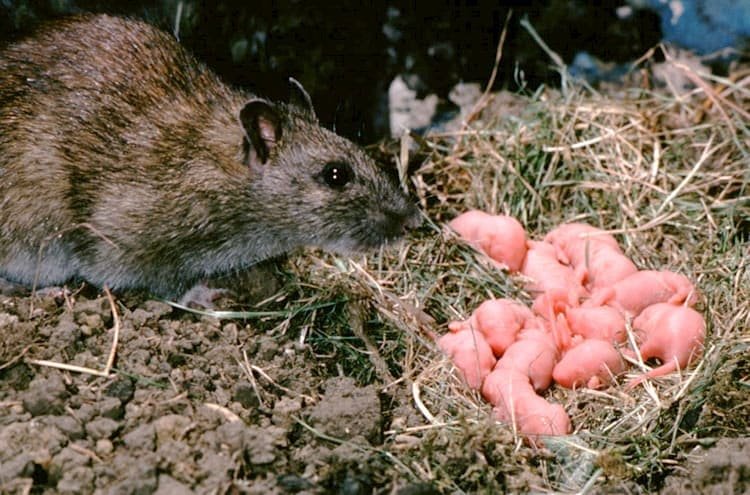How to Get Rid of Rats Outside in Garden
The approach to successful outdoor rodent control is different from tackling a normal rat in the attic problem. For one, rats travel about a football field's length a day; so even if you manage to kill all the rats around your home, more will come from neighboring, because rats suck, they dont have netflix and they have nothing better to do than ruin your day. Rats will get into more than just your garden and because of that we have another article, for those that live alittle more rural, how to get rid of rats outside.
Therefore, the key to outdoor rat control is a combination of:
Controlling the existing population
Getting rid of their colony
Keeping your yard free of attractions for new rats.
Effective rat removal can be achieved in your yard — as the old saying goes : An ounce of prevention is a pound of cure” and nothing is truer when it comes to getting rats out of your yard for good.
Rats in Garden
Here are some simple prevention tips for homeowners, tenants and landlords to protect your garden and ultimately your home:
Clear out clutter or debris from yards, alleyways, by your home
Keep gardens free of weeds and trash (maybe take your garden down in the winter)
Keep vines, bushes, and shrubs at least 6 inches away from buildings
Use hard plastic or metal trash cans with tight-fitting lids
Don't overfill garbage cans and empty them as often as possible
Never leave pet food out overnight
Monitor for any rodentt sightings, burrows, droppings, or gnaw marks
HOW TO GET RID OF RATS OUTSIDE
Identify Rat Burrows & Remove them
Rat burrows are small holes in the ground where rats live and reproduce. Each burrow typically has one main entrance that’s around 2-4 inches wide, as well as side entrances and escape holes.
In the context of DFW metroplex neighborhoods, access to food and water most commonly comes in the form of garbage left on sidewalks and alleyways, although gardens, yards, and outdoor dining setups are also attractive spots for rats to set up their burrows.
If you find a rat burrow, the easiest way to close it is to fill it with soil and tamp down with a shovel.
Burrows in cracked or broken sidewalks may need to be filled with metal filler and cement.
Pest control professionals may fill active burrows with things to kill the rats inside, such as natural rodenticides or dry ice, before closing them.
Exclusion
Exclusion, one of the cornerstones of an Integrated Pest Management (IPM) approach, involves installing physical barriers to shut the rats out.
To prevent rats from being able to get inside buildings, city officials recommend sealing all holes and cracks in foundations, walls, floors, underneath doors, and around windows. Some examples of materials used for sealing include:
Caulk
Cement
Sheet metal
Door sweeps
Pipe collars
Wire screens and steel mesh
Expanding foam
Patches of empty dirt in gardens, planters, and tree beds should be fitted with a top layer of steel mesh or a screen to stop rats from burrowing beneath the soil.
Using a caulking gun, seal cracks and small holes with caulk or cement. Any gap that’s larger than half an inch is big enough for a rat to crawl through. For larger gaps and holes, fill them with cement or expansion foam before covering with steel mesh and seal with cement.
Doors with gaps should be fitted with metal door sweeps to prevent rats from squeezing through underneath. If you see gnaw marks, install sheet metal plates on the bottom of the door.
Lastly, seal any pipes leading into walls with pipe collars and cover any drains or vents with metal screens.
Rodenticides & Baiting
Baiting is the most effective and preferred method of long-term population control for outdoor rats, we only recommend poison if your house is sealed so as no animals will be able to get in, a poisoned animal stinks worse than anything you can imagine, but thankfully if you make that mistake we have an article on how to get rid of dead animal smell in your house.
Rodenticide bait comes in the blocks — placed inside of tamper-proof boxes. These boxes are called bait stations, and are designed to allow rats to get in and eat the poisoned bait, while keeping it safely out of reach from pets and children. Rats are intelligent animals, and will avoid taking bait if they see other rats dying from it. Rats take food back to their nests to feed their babies. Since the poison is slow acting it wont immediately kill them, the poisoned bait can be shared with other rats to effectively whittle down large outdoor rat populations.
kill rats to elimanite and dispose of rats outside
Bait stations should be placed at the perimeter of your yard not near these places, don't invite rats to your home looking for a place to nest, invite them to the edge of your property, to your neighbors house, all of these are no go’s:
Doors, windows, and other entry points
Sheds and outbuildings
Pipes and vents
If you are going to get rid of rats, you need to understand what attracts rats to gardens. You could be enticing rats without knowing it as there are plants that attract rats. For rat traps to be effective, you first must understand why the rats are there. Whatever is attracting the rats needs to be removed if traps are going to work.
Get Rid of Plants that attract rats
Plants that grow fruit and vegetables will attract rats since they provide an excellent source of food for them. Chances are there is a grocery store near your home, unless your a prepper, or have a very big garden, it doesn't feed you, so find a new hobby, Gardens make it really hard to get rid of rats because all fruit food and nuts taste better and doesn't kill them like the poison
Getting Rid of Smells that attract rats
Odors and smells that come from pet waste, pet food, garbage containers, barbecue grills, birdfeeders, all attract rats and mice. A clean yard will drastically improve the prevention of attracting rodents.
Overgrown Plants and shrubbery attracts rats
Rats do not prefer open spaces but rather overgrown areas, as they provide cover from predators and it’s also an ideal place for them to build their nests. To prevent rats from living in your yard, you must deny them access to shelter. Keep your yard nicely trimmed and remove any piles of wood, brush, debris, compost piles, dense shrubbery, ground covers, and ivy as this will attract rats over time. Also, keep storage shelters properly sealed – repair or seal all openings with durable materials, such as concrete, metal flashing, steel wool, or heavy welded wire.
Water attracts rats to your garden
Most rats require a constant water source and they tend to stay around these sources. It’s necessary to remove, cover, or repair any sources that provide a water source for these rodents. This includes swimming pools, leaky faucets, irrigation lines, water bowls for pets and other sources of standing water.
Set Outdoor Traps for Rats
There are several different kinds of rat traps. Each type of trap uses a different method of catching a rat, but all can be effective. With the right bait and location setup, the traditional snap traps are still the most common and effective way of catching rats. These rodents are primarily nut and seed eaters, so using a small amount of peanut butter or hazelnut spread works best. When temperatures drop outside, rodents tend to slow down and focus on building nests, so you can also lure them by using materials such as cotton balls, dental floss, yarn, or twine. Additionally, make sure you use gloves while setting up – rodents can detect your scent on traps you’ve handled and can potentially deter them from reaching your trap.
In an attempt to remind customers that Rapid Rodent Removal are also roofers, we have also made a table of contents with all of our information about rats , mouse , squirrels and Roofing , Roof Repair , Roof Replacement (articles & blog) stemming from to all about Rat poop , Mouse poop , Squirrel poop or Raccoon poop in Your Home & or Rats in Attic, to Roofing Contractors to Rodent Control.




